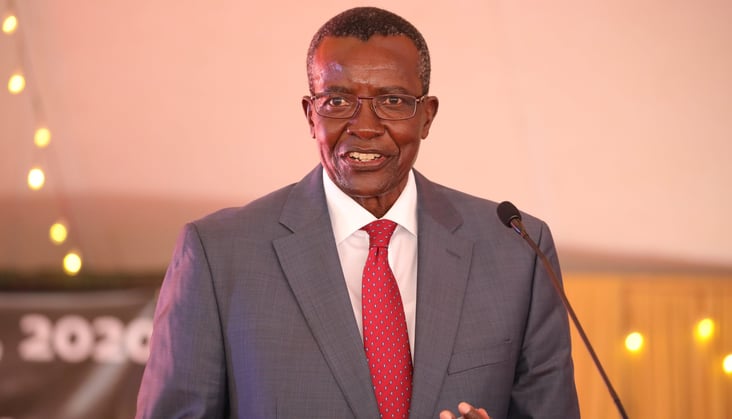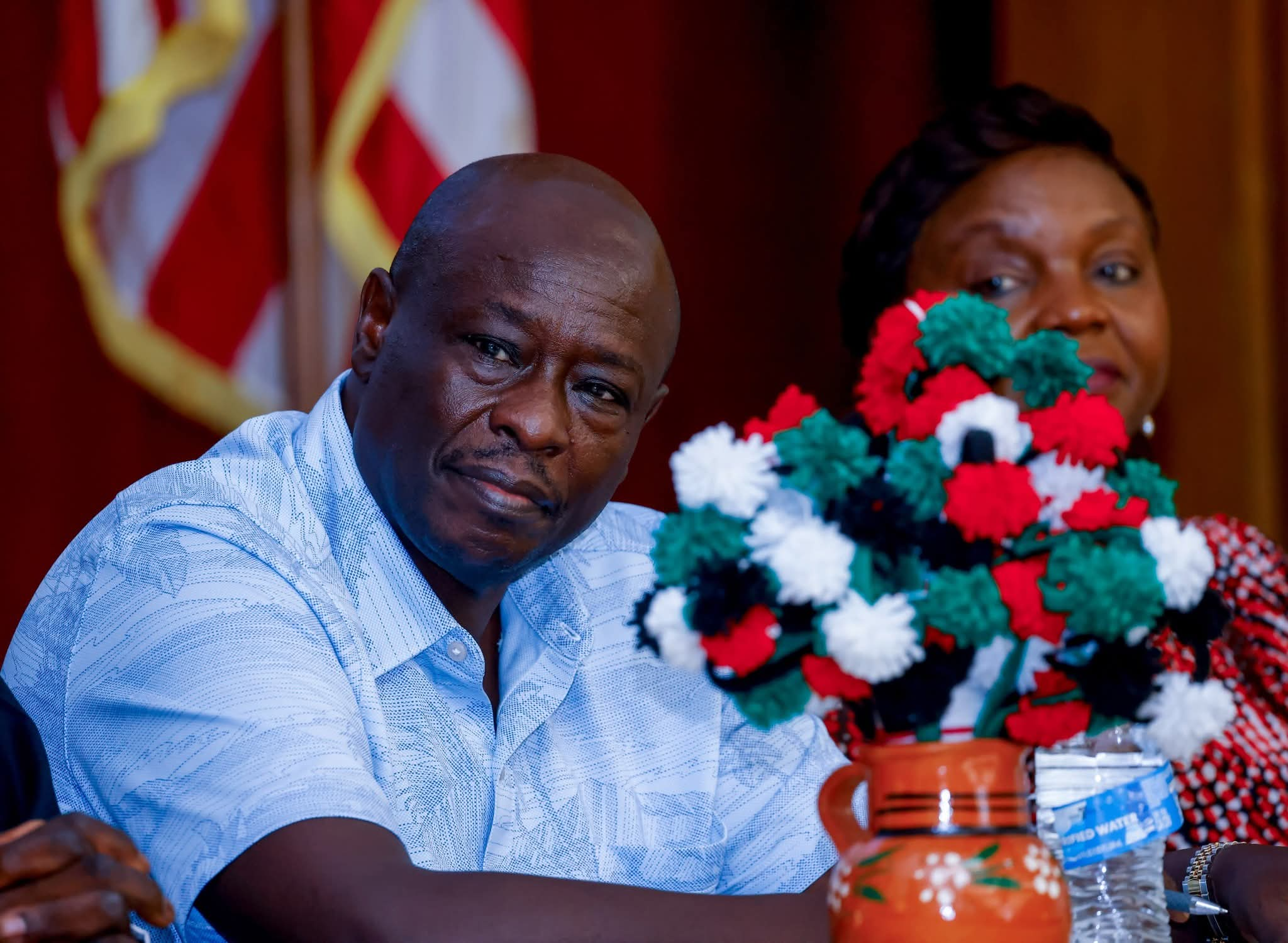When former Chief Justice David Maraga stepped into the public spotlight in September 2017, he made history by leading the Supreme Court to nullify a presidential election in Kenya for the first time. That landmark decision elevated him from a respected judicial figure to a symbol of boldness, integrity, and independence in a country where many had lost faith in public institutions.
Fast forward to 2025, and Maraga’s name is again on the lips of Kenyans after he hinted at a possible presidential bid come 2027. Speaking during a live interview at Radio Jambo, the retired Chief Justice expressed concerns about the country’s current trajectory, citing widespread corruption, misuse of public funds, and poor governance. His remarks sparked immediate debate, with some Kenyans applauding his courage and others questioning the feasibility of a judge-turned-politician leading the executive branch.
The 2017 Election Nullification That Defined His Career
To understand why Maraga’s potential entry into politics attracts so much attention, one has to revisit 2017. At the time, Kenya had just held a heated general election. The opposition challenged the results, claiming irregularities and manipulation of the electronic tallying system. Against immense political pressure, the Supreme Court under Maraga’s leadership nullified the election, citing illegalities and irregularities.
The ruling shocked the political class, infuriated many in power, and energized millions who had long felt that justice was a privilege for the few. Maraga’s calm but firm demeanor, combined with his legal reasoning, cemented his reputation as a principled leader willing to stand by the Constitution even against overwhelming odds.
That moment remains one of the most significant in Kenya’s democratic journey. It demonstrated that the judiciary could act independently and that leaders could be held accountable to the law. Maraga’s name became synonymous with courage, fairness, and the possibility of institutional reform.
Maraga’s Concerns About the Current State of the Nation
In his recent remarks, Maraga painted a grim picture of Kenya’s governance. He pointed to rampant corruption scandals, billions of shillings allegedly misused or misdirected, and public resources that never reach the citizens they are meant to serve.
For him, the problem is not lack of policies but lack of political will. He argued that corruption thrives not just because of individuals seeking personal gain but because entire systems allow misuse of funds without accountability. The result, according to Maraga, is stalled development, rising inequality, and frustration among ordinary Kenyans who see their taxes enrich a few while public services remain underfunded.
By declaring his readiness to run for president in 2027, Maraga positioned himself not just as a critic but as a potential alternative. He signaled that he is willing to take the fight against corruption beyond the courtroom and into the political arena.
Why Maraga’s Voice Matters
Unlike many politicians who have spent years maneuvering through party politics, Maraga is seen as an outsider. His brand is rooted in justice, law, and integrity rather than political patronage. This makes his message resonate differently. When he speaks about corruption, it carries the weight of someone who has spent his career interpreting and defending the Constitution.
Furthermore, Maraga’s reputation for humility and discipline contrasts with the flamboyance and divisiveness often associated with politics. Supporters argue that this gives him moral authority and the credibility to push for change in a country where political promises often go unfulfilled.
However, his lack of political experience could be both a strength and a weakness. While some Kenyans are eager for new faces outside traditional political circles, others doubt whether a career judge can navigate the complexities of coalition building, party politics, and grassroots mobilization.
Aligning with Kenya’s Political Reality
Kenya’s electoral landscape is rarely shaped by integrity alone. Ethnic affiliations, party machinery, financial resources, and grassroots networks play enormous roles. For Maraga to transition from respected jurist to viable presidential candidate, he would need to build or join a political vehicle, establish alliances across regions, and fund a nationwide campaign.
He would also face scrutiny over how his judicial past could influence his political future. Some critics may frame his 2017 decision as politically motivated, while others will celebrate it as the very reason he deserves leadership.
If he does declare formally, Maraga’s candidacy would test whether Kenya is ready to embrace leaders primarily known for integrity rather than political survival skills.
The Anti-Corruption Agenda
Maraga’s strongest card is his unwavering stance against corruption. In his recent remarks, he promised that if elected, those responsible for misuse of public funds would be taken to court and face justice. While such promises are not new in Kenya’s political space, Maraga’s background gives them unique credibility.
As Chief Justice, he saw firsthand how corruption cases moved—or stalled—within the legal system. He knows where loopholes exist and how they can be addressed. His vision, if realized, could focus on strengthening institutions, ensuring swift justice for economic crimes, and insulating watchdog agencies from political interference.
Public Reaction to His Remarks
Reactions to Maraga’s Radio Jambo interview were mixed. Many Kenyans on social media hailed him as a man of integrity and a potential “clean break” from politics as usual. They described him as a leader who could restore trust in government and curb the misuse of public resources.
Others expressed skepticism, pointing out that Kenyan politics is deeply entrenched and that even the most principled leaders often struggle to deliver once in power. They questioned whether Maraga could withstand the pressures, compromises, and alliances necessary to run a successful campaign.
Some also warned that transitioning from the judiciary to active politics could polarize opinions about his legacy, with critics potentially revisiting old judgments to attack his credibility.
Looking Ahead to 2027
As Kenya approaches another election cycle, the entry of new voices like Maraga’s could reshape the debate. His message resonates with frustrations many citizens feel about corruption and poor governance. Whether or not he eventually makes it to the ballot, his remarks highlight a national concern that cannot be ignored.
For now, Maraga remains a figure whose reputation carries both weight and expectation. His 2017 decision to nullify an election proved that he is not afraid of controversy when it serves justice. If he brings that same resolve into politics, his journey to 2027 could become one of the most closely watched stories in Kenya’s democratic history.
And while Kenyans debate whether a former Chief Justice can transform into a reform-driven president, one thing is clear: David Maraga’s voice has once again ignited conversations about integrity, justice, and the future direction of the country.




Comments (0)